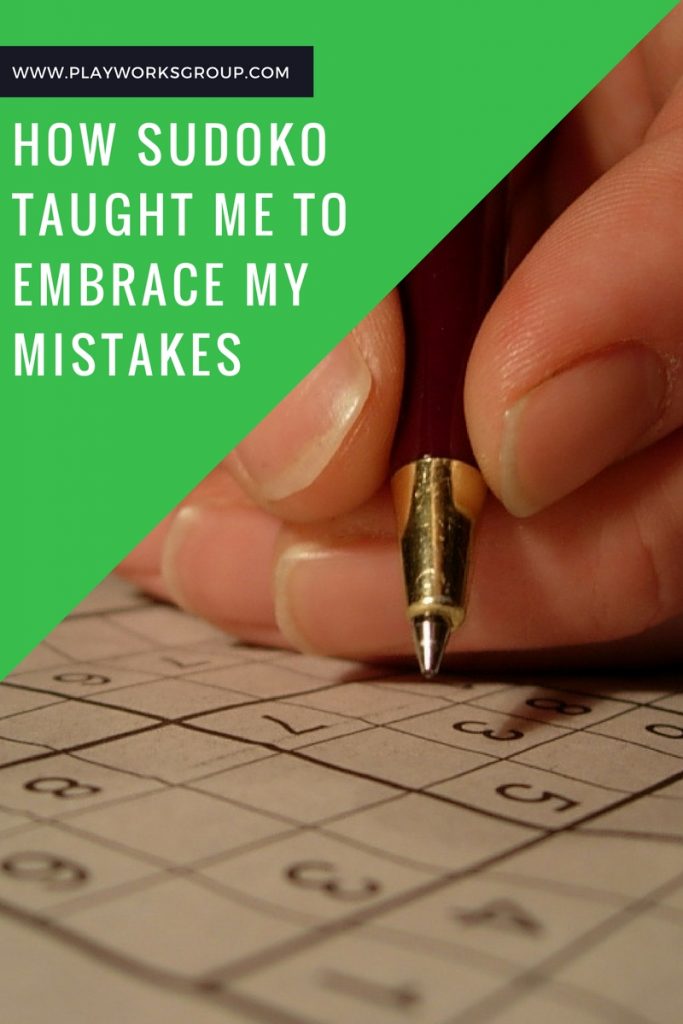What I learned about embracing your mistakes by playing an online game:
One of my (too many) private indulgences is an online Sudoku game. Sure, it might tap into my OCD tendencies, but in theory, it’s a way for me to relax during a break but at the same time, boost my brain power with a bit of problem solving logic.
“Your greatest wisdom comes from embracing your mistakes.”
– Unknown
In the most recent version of Soduku I downloaded to my device, I took notice of something interesting a few days ago. First the back story. Generally, you score points when you place the correct number in the grid, and the faster you are able to complete the puzzle, the higher your overall score. And, when you guess a wrong number – or select the wrong number because your thumb pads are wide – it tosses an “X” and the words “wrong number” on the screen, notifying you of your mistake. With this version, you get three X’s and then on the fourth, your potential points scored drop precipitously and you break your “run.” A run is when the player completes more than one puzzle in a row successfully.
I’m now playing within this game’s “expert” level. Between you, me and the fencepost, I’m sure there are a LOT of people way better at this game; I do not claim to be a sudoko expert. Within this level of play there are times where you must take your best guess. From a logic standpoint, the correct answer is not indicated.
Surprising value of embracing your mistakes:
Here’s where it gets interesting. Remember what I said about how the potential points don’t drop until the FOURTH mistake (aka, incorrect guess)? This game actually encourages, nay, forces you to take calculated risks. The game does NOT penalize you for the first three mistakes in any impactful way. You are potentially better off in fact, if you make your three mistakes relatively early in the game, immediately after all obvious selections are made. I’ve discovered that those three “mistakes” almost inevitably reveal the solution to the game.
And then guess what? At the end, the game tells you that you completed the game, shows you your three X mistakes and … are you ready for this?
It tells you you’re PERFECT.
Huh? You read right. PERFECT. Honestly, I’m pretty competitive. The idea of a game telling me I’m perfect when I very well know I made three mistakes was a bit offensive. That was my initial reaction. But then I gave it some thought.
Isn’t this the power of learning in the context of fun? Isn’t this the power of team building?
Don’t we learn more; don’t we grow more when we are freed from the fear of mistakes?
When the playing field is leveled, when none of the players bring a relevant expertise or seniority to the efforts, isn’t the team forced to accept mistakes as a normal part of the process? Read that again. Mistakes are a normal part of the process. Don’t you actually gain insight and understanding from embracing your mistakes? Yes. And wow can that have a huge effect on your team’s culture. Team building is one way you can teach this culture in your organization.
When you create a fun and safe space, you can create a culture that realizes mistakes are indeed not just part of the process, but critical to performance and to success. In fact, according to my Sudoku, you can be perfect, an expert even, with three strikes against you.






